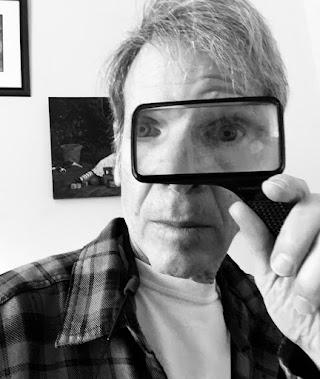An Ant Standing on Its Tiptoes
“First of all,” my late
father says, “an ant doesn’t have toes. They have heels. You could tell me the
ant was standing on its tipheels.” “I did begin my story with Once upon a
time,” I remind my late father.
The Map
As we were parting, and going
different directions in the forest, Dag asked me to wait because he wanted to
give me something. He took out of his pocket a small folded piece of paper and
handed it to me. I opened it. A map, with what seemed to be paths leading out
from a central hub, but the paths were not like straight spokes in a wheel.
They angled and curved, some almost circled back upon themselves before
straightening out then bending and wavering again. Each path has a small name
in a language I didn’t recognize. For a moment I thought there might be an
arrow, or X, with a YOU ARE HERE, but there wasn’t. While I was looking at the
map, Dag was walking away and now he’s almost hidden behind the trees. A bird
begins to sing. No, that’s Dag.
Note to Billy Mills (12/21/23)
dunnocks
live for about two years
this small
passerine, perching
bird, high-pitched voice,
oddly
long
middle toe pointing down from the
thin branch
where the dunnock per-
ches
(Prunella Modularis)
modu-
lating voice the notes arriving modularquick
units of song the dunnock belongs
to a family
called “the accentors”
dunnocks
are cover-
loving birds, sometimes
re-
ferred
to as hedge sparrows
though they’re not
sparrows
&
in your poem one is
“high in the willow”
Snail Goodness
I
thought he said, “snail goodness.” He paused after those words. “Yes, I can
forgive myself for all my slownesses,” I said to myself, “when I think of a
snail.” The shell with a spiral. How a snail is not vicious (though a leaf
might disagree, as well as a gardener). How my daughter loved snails in my
parents’ garden─when she was small she liked to place them on her forearms and
watch them slide up toward her elbow. He seemed finished with his thought, and
I said I loved the phrase “snail goodness.” “Huh,” he said, “that’s nice, but
where are you coming from?” “I thought you just said that.” “No, I said small
goodness.”
I am
world
bound, word bound, mistake
bloud,
cloud fan, shaped flood, dream
kin,
shaped blood, symphony
Rain on Clear Plastic Umbrellas (Kyoto, December 2018)
The umbrellas held by
women in kimonos on this crowded
Gion street, the plastic
umbrellas─clear wet metal-ribbed domes─
I see through the rain
between me and them─me
in my ordi-
nary dull unceremonial garb, and my hair upon which
I lavished less than
one-hundredth the time (more
like one-thousandth?)
than this woman in front of me with her hair
in a high exquisite bun.
I turn left, to go
to The Forever Museum
while she
keeps going, in our rain, her rain, mine, our exquisite time
in Gion.
John Levy lives in Tucson. His most recent book of poetry is 54 poems: selected & new (Shearsman Books, 2024).
